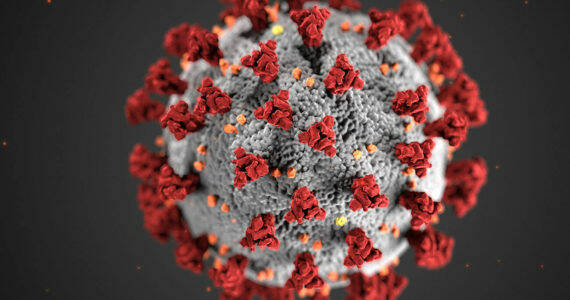Submitted by San Juan County
Recommendations about COVID-19 are in the news again, so what does that mean for residents of San Juan County? We’re here to break down the most recent Centers for Disease Control and Prevention (CDC) guidance.
Isolation Guidance
Isolation means you stay home and away from others (including household members) for the recommended period of time to avoid spreading illness. Isolation is for those who have tested positive for COVID-19, or who have symptoms of COVID-19, or who are awaiting test results. On March 1, 2024, CDC changed its isolation guidance from length-based to symptom-based. At this time, local isolation guidance has not changed for Washington State nor San Juan County. If you have been exposed to COVID-19 or have symptoms, check out Washington State Department of Health’s (DOH) decision tree to help you keep those around you safe.
Testing is an important tool to keep yourself and your loved ones safe. It is recommended that you test twice before gathering with others outside your immediate household. Plan to take one test 24 to 48 hours before the gathering and again right before you arrive. Your local pharmacy should have tests available for purchase (insurance coverage varies). If you are unable to access an at-home test at the pharmacy, we have a small supply available at your local public health office to fill in the gaps, upon request. Call 360-378-4474 to learn more.
It is possible to not test positive even after symptoms show up. This is why the DOH decision tree recommends repeated testing and isolation. Check out DOH’s FAQ article titled “After being exposed, when will a person test positive” to learn more.
If you test positive for COVID-19, there are some medications available that can help decrease the length and severity of symptoms. Contact your doctor or make a FREE telehealth appointment to see which treatment options are right for you. Telehealth providers are available every day from 8 a.m. to 8 p.m. Pacific standard time (PST). Language assistance is available. If you do not have access to a computer or smart phone, you can call 1-833-273-6330 to complete the intake form over the phone with a support agent.
Vaccine Recommendations
On Feb. 28, 2024, CDC updated their guidance so that adults 65 and older are now able to receive an additional dose of the updated COVID-19 vaccine. The recommendation acknowledges the increased risk of severe disease from COVID-19 in older adults. Recommendations have not changed for anyone else. CDC recommends everyone 6 months and older should get an updated 2023-2024 COVID-19 vaccine just once through this season.
San Juan County Health & Community Services is able to vaccine uninsured adults and children under 19 years old. If your child is under 19 years or you are an uninsured adult, please call our office at 360-378-4474 to schedule an appointment. If you are 19 or older with insurance, including those with Medicare, please contact your medical provider or local pharmacy to schedule a vaccine appointment.
Stay Safe This Spring
Spring is around the corner, so here are some simple actions you can do to keep you and your loved ones safe from respiratory illnesses like COVID-19, flu, and RSV:
Consider getting vaccinated. It’s not too late! Vaccines keep many people from getting sick with respiratory illnesses like the flu, COVID-19, and RSV. Some people who get vaccines may still get sick. However, vaccines help reduce the severity of your illness. It will also lower your chance of needing to go to the hospital.
Stay home when you’re sick. If you have any of the following symptoms, stay home until you feel better: fever, sore throat, cough, sneezing, headache, nausea and/or vomiting, and diarrhea.
Consider masking. If you must go out while you are sick or if you are visiting a vulnerable family member, consider wearing a well-fitting mask to protect those around you. People are considered vulnerable if they are under six months old or over sixty years old or someone who is likely to become severely ill with an illness that seems mild to others.
Cover your cough or sneeze. Cover your mouth and nose with a tissue or inside of your elbow when you cough or sneeze. Put your used tissue in the waste basket and wash your hands.
Wash your hands regularly. Use soap and water. If there is no soap available, use an alcohol-based hand sanitizer.
You can see current levels of disease activity at the Washington State Department of Health’s Respiratory Illness Data Dashboard and selecting the North Sound Region.



